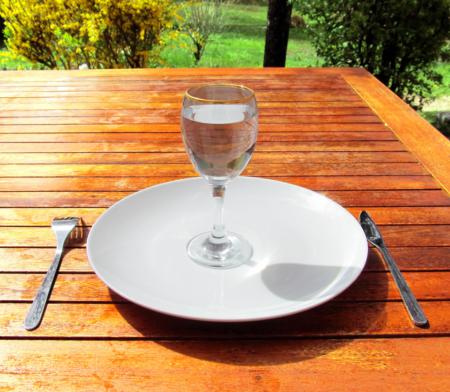Fasting during Lent; Annulment process and Communion
Q. On the two obligatory days of fasting -- Ash Wednesday and Good Friday -- I do fast, but I get very hungry during the latter part of the day. So I sometimes wait until just after midnight and then satisfy my hunger with an amount of food not in keeping with the notion of fasting.
While I believe that I am meeting the letter of my obligation, I am not sure that I am honoring its spirit. What sort of guidance would you offer? (Manalapan, New Jersey)
A. The Catholic Church, it seems to me, is rather modest in the dietary discipline it asks from believers. As you note, there are only two days of fasting on the church's calendar: Ash Wednesday and Good Friday. On those days, Catholics are to limit themselves to only one full (and meatless) meal.
Some food can be taken at the other regular meal times, but that food (combined) should not equal a full meal. Liquids are permitted at any time, but no solid food should be taken between meals.
The discipline of fasting governs only those between the ages of 18 and 59, and it does not apply to anyone for whom it might create a health risk -- for example, the sick or the frail, pregnant or nursing women -- or even to guests at a meal who cannot fast without offending the host.
We fast, of course, to unite ourselves to Christ and to the burdens he endured on our behalf. Logically, then, this fasting should result in some sacrifice on our part.
In your case, I believe that you are being faithful to the letter and the spirit of the law (assuming that after midnight you are not being gluttonous). The fact that you do struggle later in the day means that it does cost you something -- not to mention the fact that you need to stay up so late to satisfy your hunger!
Q. I was raised Catholic -- received baptism, first Communion and confirmation -- and there was never a problem with my taking holy Communion. Now I am told that, because my husband was previously married, I can no longer take Communion.
What kind of nonsense is this -- that he would have to go through a whole process of annulment that could possibly cost umpteen thousands of dollars and would drum up for him headaches from 20 years ago?
My husband is livid because of this, and I am angry and humiliated. Why should I be shunned and not permitted to take Communion when I had nothing to do with his previous marriage problems? Sorry for venting, but why do they make some of us feel guilty when I don't think that I did anything wrong? (City of origin withheld)
A. Your letter reflects the deep disappointment felt by many who are currently considered ineligible to share fully in Catholic sacramental life. It has been the church's long-held teaching that reception of the Eucharist is a privilege reserved to those considered in good standing -- i.e., if married, in a marriage that is valid in the church's eyes.
Whether that standard should change (meaning, for example, full sacramental participation should be open to those doing their best in their present situation to live according to Gospel values) is a matter of considerable discussion at the present time.
As we await the outcome, let me reduce your worries by one, and that is your fear that an annulment of your husband's first marriage might cost "umpteen thousands of dollars." For years, in my diocese, the suggested offering was $350 -- to help cover consultations with psychologists, etc., and that fee was regularly waived if it seemed to be a hardship.
Now, as of three weeks ago, that fee has been eliminated entirely in my diocese and in many others, and with strong encouragement from the pope.
---
Questions may be sent to Father Kenneth Doyle at askfatherdoyle@gmail.com and 40 Hopewell St. Albany, N.Y. 12208.
- Father Kenneth Doyle is a columnist for Catholic News Service



















